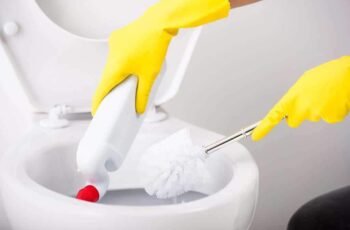Are you wondering if it’s possible to use a garbage disposal with a septic system? This is a common question, especially for those who are looking for convenient ways to dispose of their kitchen waste. In this article, we will explore whether or not it is safe to use a garbage disposal with a septic system, and provide you with some tips and guidelines to ensure your septic system remains in good working condition. So, if you’re curious about the compatibility of these two household appliances, keep reading!

This image is property of images.unsplash.com.
Introduction
If you have a septic system in your home, you may be wondering if it’s safe to use a garbage disposal. While garbage disposals can be a convenient addition to any kitchen, it’s important to understand the impact they can have on septic systems. In this article, we will explore the functioning of garbage disposals and septic systems, the potential issues that can arise when combining the two, and offer alternative solutions to consider. By the end, you’ll have a comprehensive understanding of how to safely use a garbage disposal with a septic system.
Understanding Garbage Disposals
What is a garbage disposal?
A garbage disposal, also known as a waste disposal unit, is a device that is installed under your kitchen sink. Its purpose is to shred food waste into smaller particles that can be easily flushed down the drain. This helps to reduce the amount of solid waste that ends up in your trash can, making it a convenient and environmentally friendly option for waste disposal.
How does a garbage disposal work?
When you turn on your garbage disposal, a motor spins a grinding plate or impellers that are located inside the unit. These impellers have sharp teeth that grind and shred the food waste into tiny particles. These particles are then flushed down the drain with the help of water, eventually making their way into the septic system or municipal sewer system.
Common misconceptions about garbage disposals
There are a few common misconceptions about garbage disposals that are worth addressing. One is the belief that garbage disposals can handle any type of waste. While it’s true that they can handle most food scraps, there are certain materials that should never be disposed of in a garbage disposal. These include bones, grease, oils, coffee grounds, and fibrous materials such as corn husks and celery. Disposing of these materials can lead to clogs, damage to the unit, and potentially harm the septic system.

This image is property of images.unsplash.com.
The Functioning of a Septic System
What is a septic system?
A septic system is an underground wastewater treatment system that is typically used in rural areas or homes that are not connected to a municipal sewer system. It consists of a septic tank and a drain field. The septic tank is responsible for holding and decomposing solid waste, while the drain field allows the treated wastewater to seep into the ground and be naturally filtered before returning to the environment.
How does a septic system work?
When wastewater enters the septic tank, the solid waste sinks to the bottom, forming a layer of sludge. Bacteria in the tank break down the organic material in the sludge, producing gases and turning it into a semi-solid substance called effluent. This effluent then flows out of the septic tank and into the drain field, where it is further treated by the soil and bacteria before re-entering the groundwater system.
Components of a septic system
A septic system is made up of several components that work together to ensure effective wastewater treatment. Aside from the septic tank and drain field, other important components include the distribution box, which evenly distributes effluent to the drain field, and the pipe network that connects all the components. Regular maintenance and proper use of the septic system are crucial to avoid issues and keep it functioning properly.
Impact of Garbage Disposals on Septic Systems
Reasons to be cautious about using a garbage disposal with a septic system
While garbage disposals can be useful in many households, they can pose challenges when used with septic systems. The main concern is the potential strain on the septic system due to the increased amount of solid waste entering the tank. Garbage disposals can significantly increase the load on the septic tank, which may lead to clogs, reduced efficiency, and even system failure if not properly managed.
The effect of solid waste on a septic system
Solid waste, such as food particles from a garbage disposal, can take longer to decompose in a septic tank compared to other types of waste. This can lead to a build-up of sludge, reducing the capacity of the tank and requiring more frequent pumping. Additionally, the presence of solid waste can also clog the pipes and cause backups, resulting in costly repairs and potentially affecting the overall functionality of the septic system.
Issues with overloading the septic system
When a septic system is overloaded with excessive amounts of solid waste, it can lead to an imbalance in the bacterial ecosystem within the tank. The bacteria responsible for breaking down waste may not be able to keep up with the increased workload, causing the tank to become less effective in treating wastewater. This can result in foul odors, slow draining sinks and toilets, and ultimately the need for costly repairs.

This image is property of images.unsplash.com.
Factors to Consider
Size and capacity of the septic tank
The size and capacity of your septic tank are important factors to consider when using a garbage disposal. A larger tank has more capacity to handle the additional waste generated by a garbage disposal. If your tank is already small or undersized for your household, using a garbage disposal could put additional strain on the system and lead to issues.
Frequency of septic tank maintenance
Regular maintenance of your septic system is essential for its proper functioning. If you choose to use a garbage disposal with a septic system, it’s important to increase the frequency of septic tank pumping and maintenance. This helps to prevent a build-up of solid waste and ensures that the system is operating at optimal levels.
Types of waste commonly disposed of
Consider the types of waste that you typically dispose of in your garbage disposal. As mentioned earlier, certain materials should not be disposed of in a garbage disposal, especially when using a septic system. Being mindful of what you put down the drain can help minimize the risk of clogs and other issues.
Proper use and maintenance of a garbage disposal
Proper use and maintenance of your garbage disposal can help prevent problems with your septic system. It is important to run water while using the disposal to ensure that the waste is properly flushed through the system. Additionally, regular cleaning and maintenance of the garbage disposal unit can help prevent odors and prolong its lifespan.
Alternatives to Garbage Disposals with Septic Systems
Composting
Composting is an excellent alternative to using a garbage disposal with a septic system. By composting your food waste, you can create nutrient-rich soil that can be used in your garden or landscaping. Composting not only reduces the strain on your septic system but also provides a sustainable option for waste management.
Grease traps
Installing a grease trap is another alternative for managing food waste in a household with a septic system. Grease traps capture grease, oils, and fats before they enter the septic system. This prevents clogs and reduces the chance of damage to your septic system. Regular maintenance and cleaning of the grease trap are necessary to ensure its effectiveness.
Using a separate compost bin
Having a separate compost bin for food waste eliminates the need for a garbage disposal altogether. By collecting food scraps in a designated bin, you can transport them to a compost pile or facility, reducing the load on your septic system. This method requires discipline and regular maintenance of the compost bin but can be a sustainable solution for households with septic systems.
Tips for Safe Use of a Garbage Disposal with a Septic System
Avoid disposing of certain materials
To minimize the impact on your septic system, avoid disposing of materials that can cause clogs or damage to the system. This includes bones, grease, oils, coffee grounds, and fibrous materials such as corn husks and celery. Instead, opt for the composting or separate compost bin methods discussed earlier.
Minimize the use of the garbage disposal
Using your garbage disposal sparingly can help reduce the strain on your septic system. Try to scrape food waste into the trash or compost bin whenever possible, and use the garbage disposal only for small amounts of easily biodegradable waste. This will help prevent overloading the septic system and potential issues down the line.
Regularly maintain the septic system
Regular maintenance is crucial for the proper functioning of your septic system, especially when using a garbage disposal. Ensure that you have your septic tank pumped regularly to remove accumulated sludge and maintain the optimal functioning of the system. Additionally, schedule professional inspections and monitoring to detect any potential issues early on.
Septic System Maintenance
Importance of regular maintenance
Regular maintenance of your septic system cannot be stressed enough. Proper maintenance helps to prevent costly repairs, prolong the lifespan of the system, and ensures that it operates efficiently. Schedule periodic maintenance with a certified professional to keep your septic system in optimal condition.
Proper septic tank pumping
Septic tank pumping is an essential part of septic system maintenance. The frequency of pumping depends on the size of the tank and the number of occupants in the household. When using a garbage disposal, it’s important to increase the frequency of pumping to prevent the build-up of solid waste and maintain the overall health of the system.
Professional inspections and monitoring
Having your septic system inspected regularly by a professional can help identify any potential issues before they become major problems. They can check for leaks, signs of backup, assess the overall health of the system, and provide guidance on how to minimize the impact of a garbage disposal. Regular monitoring can ensure that your septic system is functioning optimally.
Conclusion
When it comes to using a garbage disposal with a septic system, there are important factors to consider. While it is possible to use a garbage disposal with a septic system, it requires a cautious and responsible approach. Considering the size and capacity of your septic tank, the types of waste you dispose of, and the frequency of maintenance are essential for the proper functioning of your septic system. Alternatively, exploring alternatives such as composting or installing grease traps can significantly reduce the strain on your septic system. By following the tips for safe use and practicing regular septic system maintenance, you can ensure that both your garbage disposal and septic system work harmoniously for years to come.

